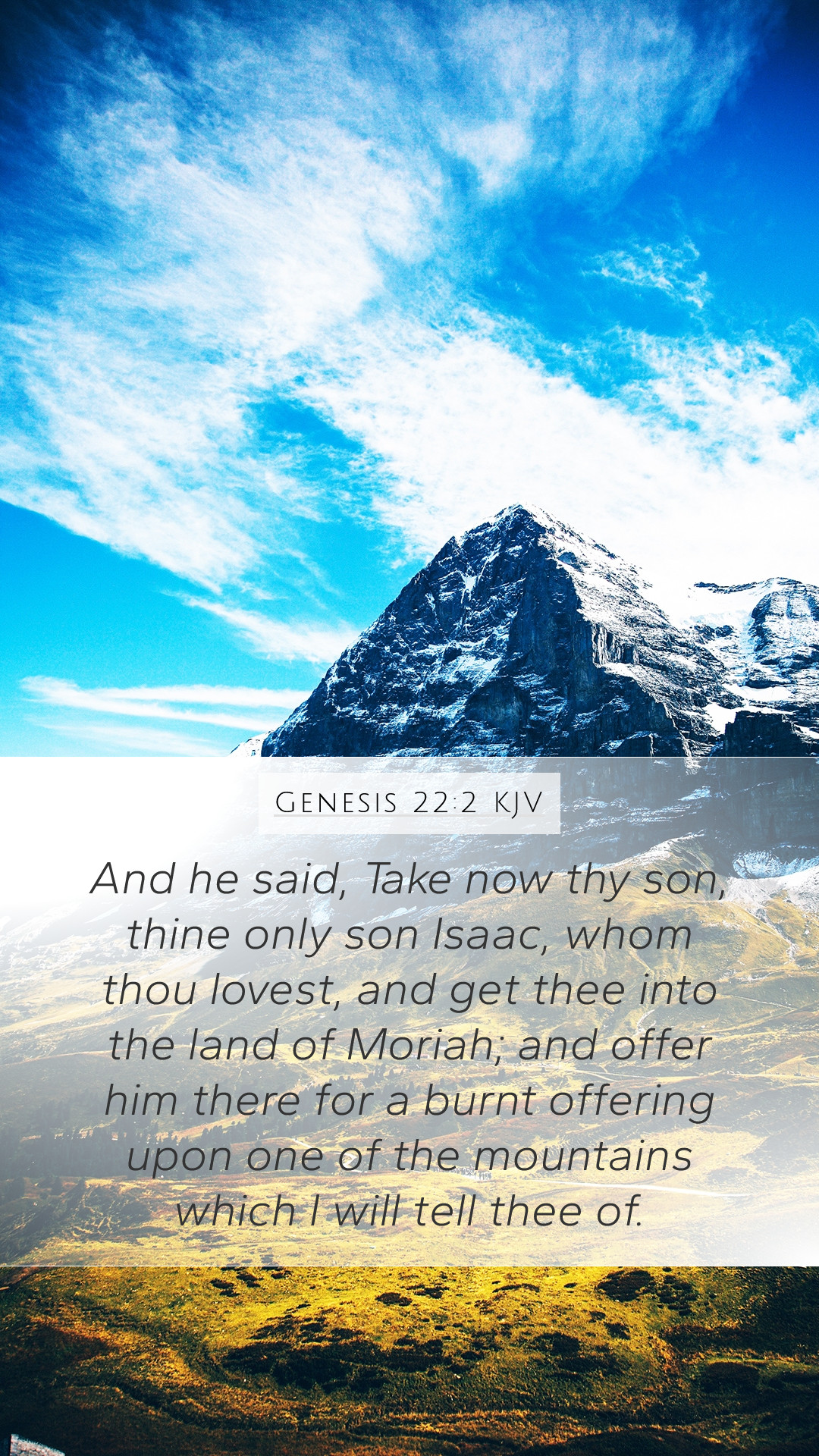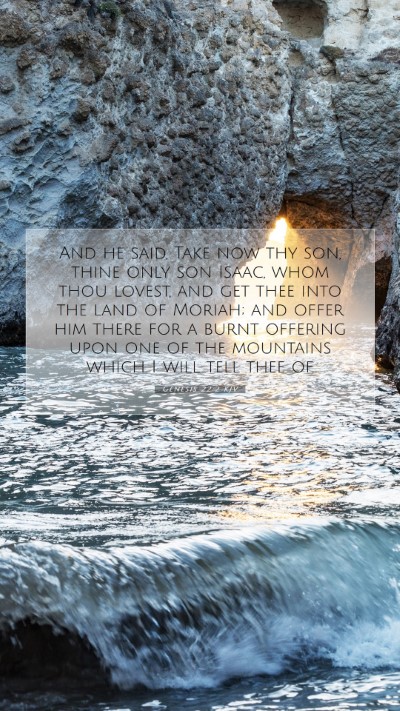Understanding Genesis 22:2 - A Comprehensive Study
Genesis 22:2 states: "And He said, Take now your son, your only son Isaac, whom you love, and go to the land of Moriah, and offer him there as a burnt offering on one of the mountains of which I shall tell you." This verse is fundamental in biblical history, illustrating themes of faith, obedience, and the complexity of divine testing.
Contextual Background
The incident in Genesis 22 occurs after God’s covenant with Abraham has been established. Isaac, the promised child, symbolizes the fulfillment of God's promise. This chapter introduces a pivotal moment where Abraham's faith would be tested in a way that would impact humanity.
Verse Breakdown
- “Take now your son”: This command signifies the seriousness of God's request, highlighting the personal nature of the sacrifice.
- “your only son Isaac”: Isaac is referred to as the only son to emphasize the depth of Abraham's attachment and the weight of the sacrifice required.
- “whom you love”: This phrase underlines the emotional intensity involved in this act of obedience. Abraham's love for Isaac is profound and serves to enhance the test that God is imposing.
- “go to the land of Moriah”: Moriah's geographical and spiritual significance connects to future biblical events, suggesting sites of foreseen sacrifice.
- “offer him... as a burnt offering”: This act symbolizes complete surrender and devotion to God, a theme echoed throughout scripture.
Theological Implications
This passage forces us to confront the nature of faith and obedience. Abraham's willingness to sacrifice his son illustrates a level of devotion that challenges modern believers.
Matthew Henry refers to this test as “Abraham's great trial,” indicating that it exemplifies loyalty to God above all else. Adam Clarke elaborates on it, suggesting that this profound challenge was a moment for God to elevate Abraham’s faith, revealing the depth of his commitment to divine instructions.
Insights from Public Domain Commentaries
Matthew Henry
Henry emphasizes the significance of the sacrificial act, illustrating it as demonstrating Abraham’s faith and trust in God. He interprets this as not just personal sacrifice, but as a precursor to the ultimate sacrifice of Christ, drawing parallels between Isaac and Jesus, the beloved Son.
Albert Barnes
Barnes focuses on the obedience embedded in Abraham’s action. He postulates that Abraham believed in God’s ability to resurrect Isaac, showcasing the profound depth of faith during challenges that seem insurmountable.
Adam Clarke
Clarke highlights the importance of Moriah, noting its future significance in the narrative of Israel. He suggests that this location foreshadows pivotal moments in biblical history, drawing connections across scriptural timelines.
Cross-References
- James 2:21-23: Highlights Abraham's faith being tested and justified through works.
- Hebrews 11:17-19: Addresses Abraham's faith in God’s ability to raise Isaac from the dead.
- Romans 8:32: Discusses God’s own sacrifice of His Son, emphasizing the significance of sacrifice in faith.
Application for Today’s Believers
Understanding Genesis 22:2 encourages modern believers to reflect on their own faith and what sacrifices they might need to make in their lives. The call to obedience, even when it seems counterintuitive, remains relevant. Believers are challenged to consider: What are we willing to surrender for the sake of divine obedience?
Conclusion
Genesis 22:2 invites deep contemplation on God’s demands and our responses to them. It serves as a cornerstone for understanding faith through action. Through the lens of historic and contemporary commentary, we see that the essence of this verse transcends time—calling believers into an intricate relationship with God that necessitates trust and commitment.


